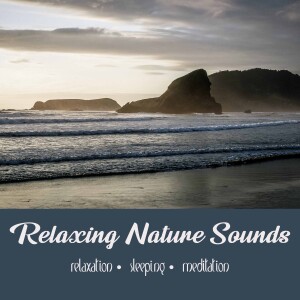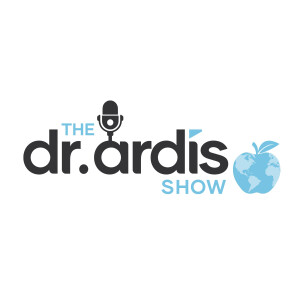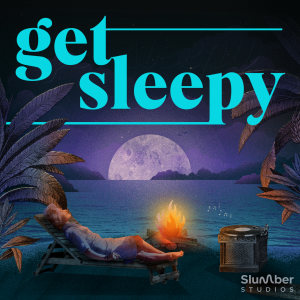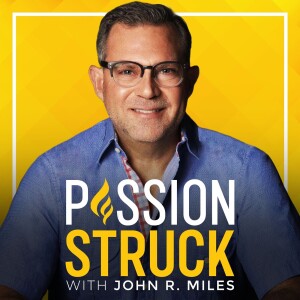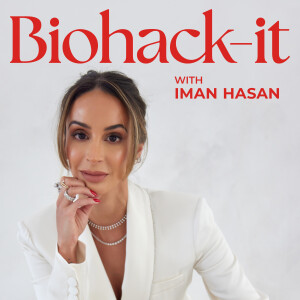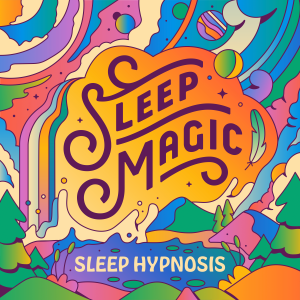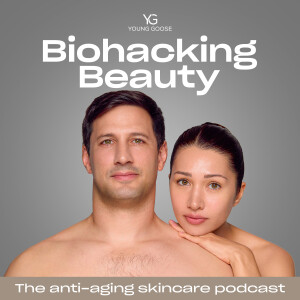

Videos:
1. Artificial Intelligence: The Coming Storm | Michael Harrison | TEDxBlinnCollege (8:00)*Michael holds a Bachelor of Science degree with a major in theoretical physics minor in quantum chromodynamics from the Massachusetts Institute of Technology. He earned distinction in his master’s program in aerospace systems architecture at the University of Southern California.
2 . Vitamin Authentication. Electronic pill that stays in your body & will become a 18bit Battery operated chip (1:00)
3. Pfizer CEO ‘Almost Certain’ Americans Will Have To Take New COVID Vaccines ‘Every Year’
4. There was an unexpected 40% increase in ‘all cause deaths’ in 2021
5. Hear ex-CIA director’s prediction about who will win in Ukraine
6. Jonathan Haidt The Coddling of the American Mind
Anticoagulant activities of curcumin and its derivative
Kyungpook National University (South Korea)
Curcumin, a polyphenol responsible for the yellow color of the curry spice turmeric, possesses antiinflammatory, antiproliferative and antiangiogenic activities. However, anticoagulant activities of curcumin have not been studied.
The anticoagulant properties of curcumin and its derivative (bisdemethoxycurcumin, BDMC) were determined by monitoring activated partial thromboplastin time (aPTT), prothrombin time (PT) as well as cell-based thrombin and activated factor X (FXa) generation activities.
Data showed that curcumin and BDMC prolonged aPTT and PT significantly and inhibited thrombin and FXa activities. They inhibited the generation of thrombin or FXa. In accordance with these anticoagulant activities, curcumin and BDMC showed anticoagulant effect in vivo.
Surprisingly, these anticoagulant effects of curcumin were better than those of BDMC indicating that methoxy group in curcumin positively regulated anticoagulant function of curcumin. Therefore, these results suggest that curcumin and BDMC possess antithrombotic activities and daily consumption of the curry spice turmeric might help maintain anticoagulant status.
Probiotics may prevent breast cancer: Study
Western University (Ontario), June 27, 2022
A new study has found probiotics may prove to be a critical factor in preventing breast cancer.
Dr Gregor Reid, the professor of microbiology, immunology and surgery at the Western University in Ontario, Canada, said the bacteria having the potential to abet breast cancer are present in the breasts of cancer patients, while beneficial bacteria are more abundant in healthy breasts.
In the study, Reid's PhD student Camilla Urbaniak obtained breast tissues from 58 women, who were undergoing lumpectomies or mastectomies for either benign (13 women) or cancerous (45 women) tumors as well as from 23 healthy women, who had undergone breast reductions or enhancements.
Researchers found that women with breast cancer had elevated levels of Escherichia coli and Staphylococcus epidermidis, two bacteria known to induce double-stranded breaks in DNA in HeLa cells, which are cultured human cells. They say the breaks are prone to errors, which can cause cancer to develop.
Health-promoting bacteria Lactobacillus and Streptococcus (lactic acid bacteria) were more abundant in women with healthy breasts, both are anti-carcinogenic.
University of Michigan, June 27, 2022
In the past few years, thrill-seekers from Hollywood, Silicon Valley and beyond have been travelling to South America to take part in so-called Ayahuasca retreats. Their goal: to partake in a brewed concoction made from a vine plant Banisteriopsis caapi, traditionally used by indigenous people for sacred religious ceremonies. Drinkers of Ayahuasca experience short-term hallucinogenic episodes many describe as life-changing.
The active ingredient responsible for these psychedelic visions is a molecule called dimethyltryptamine (DMT). For the first time, a team led by Michigan Medicine has discovered the widespread presence of naturally-occurring DMT in the mammalian brain. The finding is the first step toward studying DMT-- and figuring out its role -- within the brains of humans.
"DMT is not just in plants, but also can be detected in mammals," says Jimo Borjigin, Ph.D., of the Department of Molecular and Integrative Physiology. Her interest in DMT came about accidentally. Before studying the psychedelic, her research focused on melatonin production in the pineal gland.
In the seventeenth century, the philosopher Rene Descartes claimed that the pineal gland, a small pinecone-shaped organ located deep in the center of the brain, was the seat of the soul. Since its discovery, the pineal gland, known by some as the third eye, has been shrouded in mystery. Scientists now know it controls the production of melatonin, playing an important role in modulating circadian rhythms, or the body's internal clock.
The core idea seems to come from a documentary featuring the work of researcher Rick Strassman, Ph.D. with the University of New Mexico School of Medicine. In the mid-1990s, he conducted an experiment in which human subjects were given DMT by IV injection and interviewed after its effects wore off. In a documentary about the experiment, Strassman claims that he believed the pineal gland makes and secretes DMT.
Borjigin sought to discover how and where DMT was synthesized. They found DMT in other parts of the brain, including the neocortex and hippocampus that are important for higher-order brain functions including learning and memory."
A paper published in 2018 by researchers in the U.K. purported that DMT simulates the near death experience, wherein people report the sensation of transcending their bodies and entering another realm.
Puffing curcumin may blast Alzheimer’s
Vanderbilt University, Jun 22, 2022
The new delivery method may be more effective than others in getting the compound past the blood-brain barrier and into the brain, where it can fight the plaque that leads to Alzheimer's.
Deep breaths of curcumin may be key to fighting Alzheimer’s disease, according to a new study from Vanderbilt University.
Curcumin, a compound in the spice turmeric, has a demonstrated ability to smash the plaques in the brain that lead to the neuron loss that causes Alzheimer’s, according to the study’s senior author,Wellington Pham, Ph.D
The challenge, however, has been getting the curcumin into the brain.
Pham and colleagues at Shiga University of Medical Science in Otsu, Japan, developed a new delivery strategy. They created a curcumin moleculte that could be tracked with an MRI, to be administered as an aerosol through a nebulizer. This method delivers the dose more directly to the brain than taking the compound orally and digesting it.
After tests in mice, the team found that “delivery to the cortex and hippocampal areas is more efficient using aerosolized curcumin than intervenous injection in a transgenic mouse model of Alzheimer’s disease,” said Pham.
Anti-anxiety medication limits empathetic behavior in rats
University of Chicago, June 27, 2022
Rats given midazolam, an anti-anxiety medication, were less likely to free trapped companions because the drug lessened their empathy, according to a new study by University of Chicago neuroscientists.
The research, published in the journal Frontiers in Psychology, validates studies that show rats are emotionally motivated to help other rats in distress. In the latest study, rats treated with midazolam did not open the door to a restrainer device containing a trapped rat, although control rats routinely freed their trapped companions. Midazolam did not interfere with the rats' physical ability to open the restrainer door, however. In fact, when the restrainer device contained chocolate instead of a trapped rat, the test rats routinely opened the door. The findings show that the act of helping others depends on emotional reactions, which are dampened by the anti-anxiety medication.
"The rats help each other because they care," said Peggy Mason, PhD, professor of neurobiology at the University of Chicago. "They need to share the affect of the trapped rat in order to help, and that's a fundamental finding that tells us something about how we operate, because we're mammals like rats too."
7 Simple Ways to Unclog Your Arteries Naturally
GreenMedInfo, June 23, 2022
Statistically, atherosclerosis (the progressive clogging of the arteries) is the #1 killer on the planet. A complex process, involving autoimmunity, infection, dietary incompatibilities, and many known and unknown factors, it is – despite conventional medical opinion – entirely preventable, and in some cases reversible.
Here is the peer-reviewed, published research proving the fact:
- B Vitamins – yes, something as simple as adding a source of B-complex to your regimen can prevent the juggernaut of heart disease from taking your life prematurely. A doubled-blind, randomized study, published in 2005, in the journal Atherosclerosis found that a simple intervention using 2.5 mg folic acid, 25 mg Vitamin B6, and 0.5mg Vitamin B12 for 1 year, resulted in significant reductions in arterial thickness (as measured by intima media thickeness).[1] Even niacin ]or folic acid alone has been show to have this effect in patients. [Note: Always opt for natural sources of the B-group vitamins, including probiotic supplementation (which produce the entire complement for you), or a whole food extract, versus synthetic or semi-synthetic vitamins which, sadly, predominate on the market today].
- Garlic – as we have documented extensively previously, garlic can save your life. It has been found to regress plaque buildup in the arteries, among many other potentially life-saving health benefits.
- Pomegranate – this super healing fruit has been found to regress plaque buildup in the arteries, as well as being demonstrated to provide dozens of validated health benefits, including replacing the function of the mammalian ovary!
- Fermented Cabbage – Kimchi, a Korean recipe, which includes fermented cabbage, hot pepper, and various other ingredients, including fermented fish, appears to stall the atherosclerotic process in the animal model. Additionally, strains of good bacteria in kimchi have been found capable of degrading toxic chemicals that can additional bodily harm.
- L-Arginine: This amino acid is capable of preventing arterial thickening – up to 24% reduction! -- in the animal model. We have done an extensive literature review on arginine supplementation and have found that in over 30 studies demonstrating this fact addition to 150 known health benefits, it is capable of addressing the underlying dysfunction associated with cardiovascular disease: endothelial dysfunction, with no less than 20 studies proving this fact.
- Curcumin: the primary polyphenol in the Indian spice turmeric known as curcumin has been found to be an excellent cardioprotective, with over 30 studies demonstrating this fact. One study found that curcumin prevented damage to the arteries associated with blockage (neointima formation).
- Sesame Seed: probably one of the most underappreciated super foods on the planet, sesame seed, which we have shown is as effective as Tylenol for arthritic pain, may be an excellent cardioprotective substance, ideally suited for preventing the progression of atherosclerosis. One animal study found it was capable of preventing atherosclerosis lesion formation.
More Episodes
All Episodes>>You may also like
Create Your Podcast In Minutes
- Full-featured podcast site
- Unlimited storage and bandwidth
- Comprehensive podcast stats
- Distribute to Apple Podcasts, Spotify, and more
- Make money with your podcast


